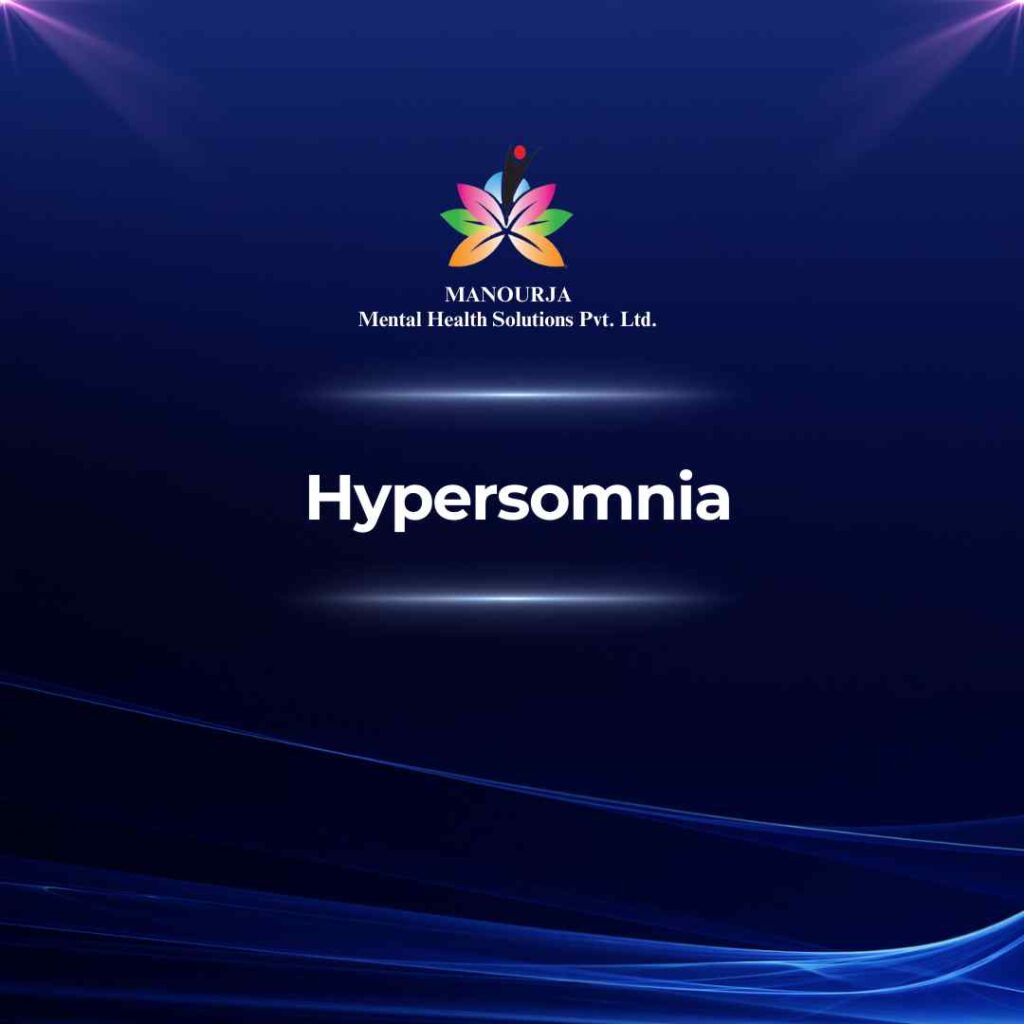Hypersomnia

Hypersomnia is a condition characterized by excessive daytime sleepiness or prolonged nighttime sleep. It is considered a symptom of several mental health disorders where abnormal sleep patterns are prevalent.
Signs and Symptoms in Mental Illness
Hypersomnia can manifest in various mental health conditions:
- Major Depressive Disorder (MDD): Individuals experiencing depressive episodes often report symptoms of hypersomnia, such as excessive sleepiness during the day or prolonged sleep durations at night. This can result in difficulty waking up in the morning, despite extended periods of sleep.
- Bipolar Disorder: Hypersomnia may occur during depressive phases of bipolar disorder, alongside feelings of low energy, fatigue, and decreased interest in daily activities. In contrast, during manic episodes, individuals may experience reduced need for sleep (insomnia).
- Narcolepsy: A neurological disorder characterized by excessive daytime sleepiness, narcolepsy can include symptoms of hypersomnia, where individuals may suddenly fall asleep during the day, even after a full night’s rest.
- Anxiety Disorders: While anxiety is often associated with insomnia (difficulty falling or staying asleep), some individuals with anxiety disorders may also experience hypersomnia as a response to chronic stress or as a symptom of comorbid depression.
Treatment and Management
Managing hypersomnia involves addressing the underlying mental health condition and improving sleep hygiene:
- Medication: Depending on the specific diagnosis, medications such as antidepressants, stimulants (for narcolepsy), or sleep aids may be prescribed to regulate sleep patterns and improve wakefulness during the day.
- Cognitive Behavioral Therapy (CBT): CBT for insomnia (CBT-I) can be effective in treating sleep disorders associated with mental illness, including hypersomnia. It focuses on changing behaviors and attitudes towards sleep to promote healthier sleep patterns.
- Lifestyle Adjustments: Establishing a regular sleep schedule, creating a comfortable sleep environment, avoiding stimulants close to bedtime, and incorporating relaxation techniques can help manage hypersomnia symptoms.
Conclusion
Hypersomnia, characterized by excessive daytime sleepiness or prolonged nighttime sleep, is a symptom observed in several mental health disorders, including major depressive disorder, bipolar disorder, narcolepsy, and anxiety disorders. Effective management involves addressing the underlying mental health condition alongside improving sleep hygiene practices.
At MANOURJA, we believe in the transformative power of counseling. Our experienced therapists offer a safe and supportive space where you can explore your thoughts, emotions, and challenges. Through personalized counselling sessions, we’ll work together to develop coping strategies, build resilience, and achieve lasting positive change. Discover the path to a healthier, happier you with MANOURJA counselling services.
MANOURJA Rehabilitation Services
At MANOURJA, we’re dedicated to helping you in rebuild your life, after difficult times. Our rehabilitation services focus on understanding what you need to move forward, whether you’re recovering from addiction, trauma, or any psychological – social challenges. We create personalized plans, that are all about helping you, regain your strength and find hope again. With a caring team by your side, you’ll have the support to make real progress and take steps toward a brighter, healthier future.
